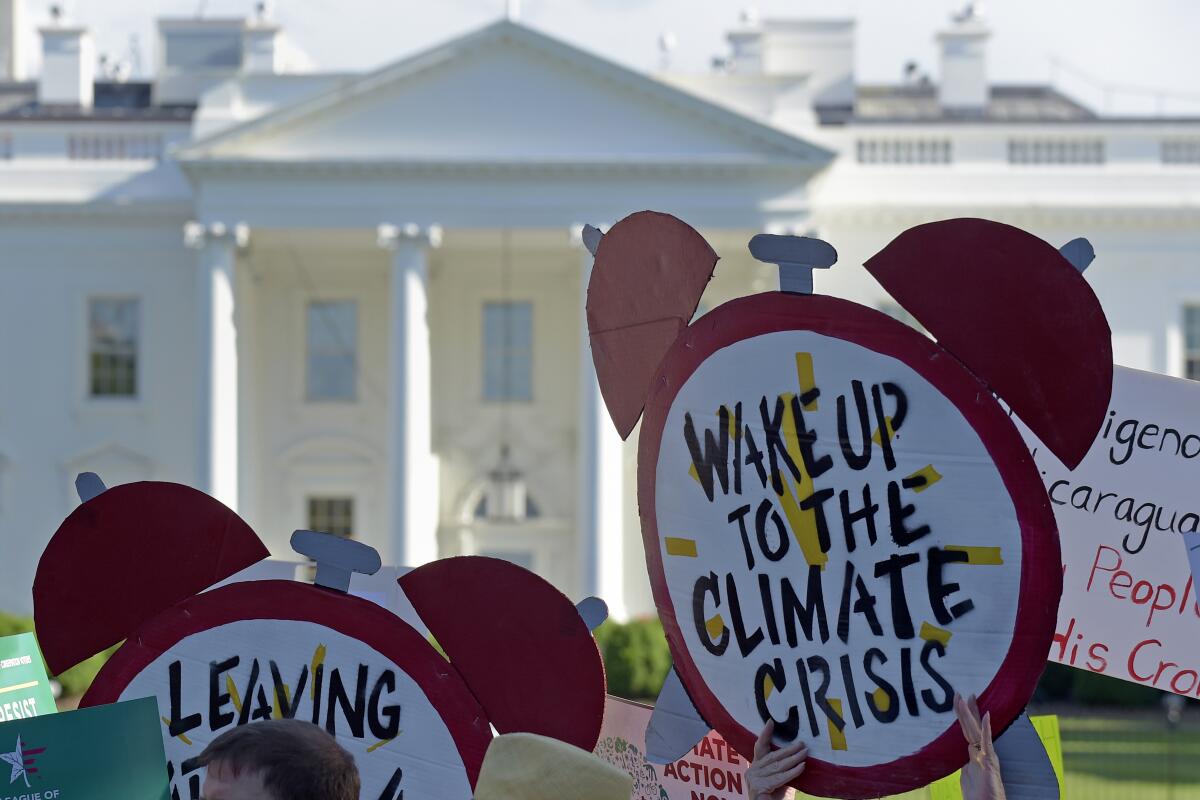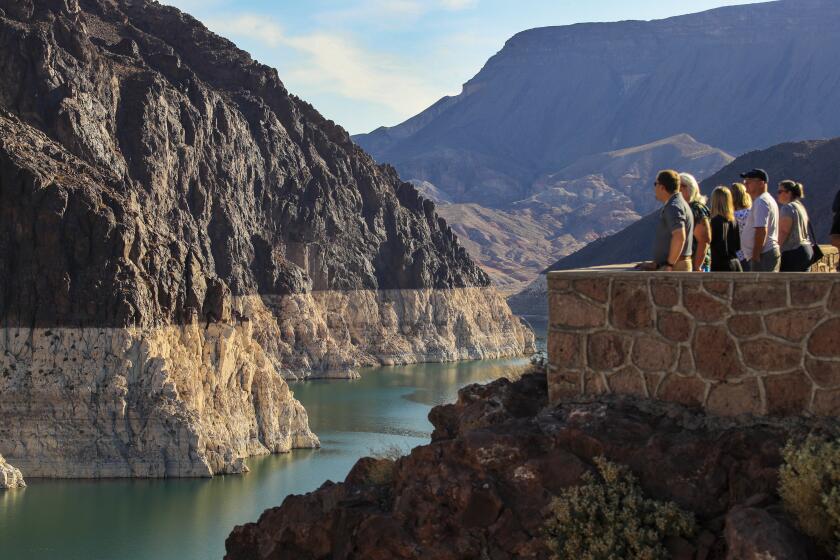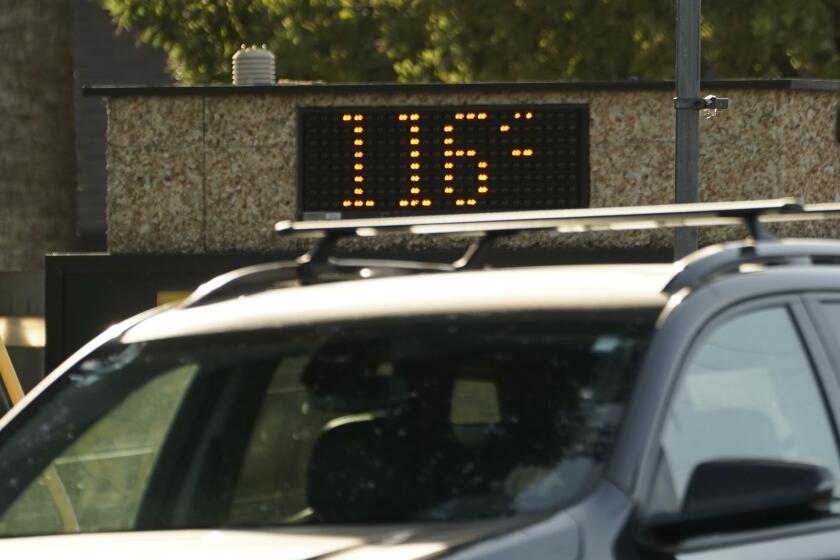Editorial: Biden says he’s ‘practically’ declared a climate emergency. Why won’t he do it for real?

- Share via
President Biden’s recent claim that he has “practically” declared a climate emergency has renewed calls for him to actually do so.
And he should.
Since the start of his term, climate activists have urged Biden to declare a climate emergency to unlock additional executive powers and resources to increase renewable energy, restrict fossil fuel extraction and protect Americans from wildfires, heat waves, storms and other climate-fueled disasters.
But pressure eased with the deal to pass the renewable energy-boosting Inflation Reduction Act, and after Biden signed it into law, he never declared a climate emergency. So it was laughable when the president said an Aug. 9 interview with the Weather Channel that he already had done so, “practically speaking.” The Poynter Institute’s Politifact Truth-O-Meter rated his statement “false.”
If the president is serious about fighting the climate crisis, why not declare it an emergency for real?
The Inflation Reduction Act is the biggest investment in climate action in U.S. history, but it pales in comparison to the scale of action needed to keep global warming from reaching disastrous levels.
Invoking the National Emergencies Act, the Stafford Act and other federal laws that give the president executive authority to respond to disasters, emergencies and threats to national security would enable Biden to access additional funding for climate-resilient infrastructure projects by the Pentagon and Federal Emergency Management Agency. He could go beyond that and restore the ban on crude oil exports, suspend offshore drilling in federal waters and stop investments in foreign fossil fuel projects. And with the Republican-controlled House blocking climate action, the country needs the executive branch to respond more aggressively.
Biden’s rhetoric on climate change has been strong — he has at least called it an emergency — and with the Inflation Reduction Act, he took the biggest federal climate action to date.
But the president’s actions still fall seriously short, particularly when it comes to phasing out fossil fuels that are overheating the climate. In March he broke a major campaign promise to stop drilling on federal land by approving the Willow oil drilling project in Alaska and he moved forward with a massive oil and gas lease sale in the Gulf of Mexico that could generate tens of millions of tons of carbon emissions. In June, Biden signed legislation to fast-track the Mountain Valley Pipeline to transport methane gas from West Virginia to southern Virginia.
California’s water supply has become too low to continue irrigating extremely thirsty landscaping at malls, office parks and other places that exist only for looks, not for recreation or other use.
There is value in the country that has spewed more planet-warming pollution historically than any other declaring the crisis a true emergency. And doing it through executive action isn’t a stretch. Biden has already acted without Congress to spur production of solar panels and heat pumps under the Cold War-era Defense Production Act and designate five new national monuments using the 117-year-old Antiquities Act.
A presidential climate emergency declaration might anger Republicans in Congress, but that should not stop him. Presidents of both parties have declared dozens of national emergencies since the 1970s to respond to natural disasters, terrorism and disease outbreaks. Some of these declarations remain in place decades later, and not one has been overturned in court.
An Arizona congressman has proposed fixing that. It makes sense considering how destructive, and increasingly common, high temperatures have become.
In an interview Tuesday, White House National Climate Advisor Ali Zaidi pointed to other actions Biden has taken, through the Environmental Protection Agency and other agencies, to cut greenhouse gas pollution, and said that since signing the Inflation Reduction Act last year “he has been relentless in making sure his administration is looking for additional ways to move faster and faster.”
“The president has been very clear with his team to leave no stone unturned,” Zaidi told a Times editorial writer, and is “looking at responsible uses of emergency authorities where they fit.”
The planet is, of course, already telling us loud and clear that we’re in an emergency. This year alone we’ve seen the hottest month ever recorded, flooding that caused more than $4 billion in damage in California, 101-degree ocean temperatures in Florida, choking wildfire smoke that turned skies orange, a hurricane bound for Southern California and the nation’s deadliest wildfire in more than a century.
We need the president to scale up his response to the climate crisis accordingly, and follow through with bold new actions. Biden can start by declaring it the emergency that he already knows it to be.
More to Read
A cure for the common opinion
Get thought-provoking perspectives with our weekly newsletter.
You may occasionally receive promotional content from the Los Angeles Times.













